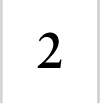

AUGUST ELEVENTH he turned fifteen and legal to drive with an adult, and then two days after that Terry Webber started at the high school. He was named for a champion racehorse from northern Virginia called Terrence’s Cotton Mather, and for his father, the second shift foreman at Hardwick Textile in Issaqueena, South Carolina. Sometimes he lingered in the woods at mounds for dead Cherokee and looked for parts of them still there. His chin and cheekbones were severe, angry in a way he did not mean, and his neck down onto his chest was splotched red, cold outside or not. The front tooth on his left hand side was dark gray from a yellow plastic bat he took to the mouth in second grade. He was narrow in the legs and shoulders, didn’t figure himself any kind of strong, but the easy way he broke some things surprised him, a fury, a dogfight there he didn’t consider.
His father, Benjamin Webber, turned fifty-seven on the eighteenth day of that month, and at work, brown sweatshirt, short on his knobbed wrists, plastic goggles, corded tight at the back of his head, he waited for the last one running the dye vats to punch out, squared the front latch in the truck bay, shut the lights in the break room and unplugged the soda machine from the wall socket, took a cardboard box of twenty brick red sweatshirts stitched that day, and put them to his trunk. The next afternoon he traded them, plus two hundred dollars, to a man called Nola Walker for a gunmetal blue hatchback. He was well known, Nola Walker; besides two square miles of junked cars he owned a firework warehouse, a service
Station, a petting zoo with a Bengal tiger and a howler monkey that ate cigarette filters, a mile racetrack for dirt bikes.
Benjamin Webber left the keys on the small table in the kitchen, two of them, attached at a paper clip; Terry kept to paved roads the first week, learned the feel of the brakes, to press them long before he wanted to stop, the northwest drift of the wheels, places where the engine held, and where it ran full on. He learned often, when rolled down, the passenger side window got stuck, and that the navy ceiling cloth drooped from the metal, ballooned close to his scalp like a pup tent, blown wind taut. Then he wanted the dirt roads and went ten minutes on a wet side path close to the school. He ran a long puddle too fast, and the back end sank, tires necked rim high in the bog, and then the car was stuck, and required chain.
He didn’t put it on right. When the tow lurched the chain noose slid to the driver’s side and pulled the fender out close to a foot at the corner. He left it that way, and the car got wet in the rain, the lip rusted sharp and bowed. Twice he bumped a leg against it in the school lot, and cursed, leapt to the other foot and held his shin with two hands.
It took an afternoon for him to color the wide rust spot on the hood with a blue permanent marker he lifted from the mercantile; he’d taken, as well, a metal ring for his keys. He hovered at it like homework, a science experiment.